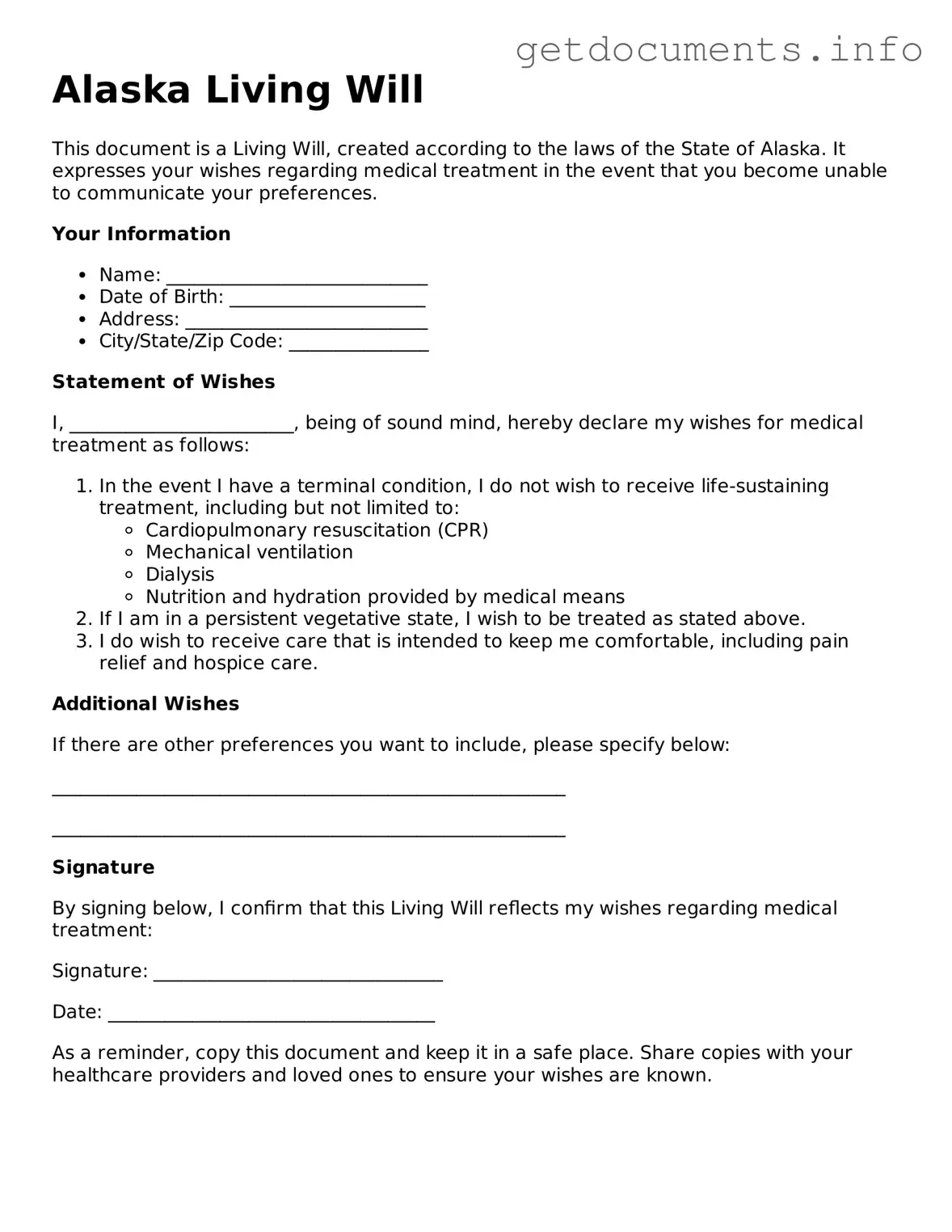Free Living Will Template for Alaska
A Living Will is a legal document that outlines an individual’s preferences for medical treatment in the event they become unable to communicate their wishes. This form allows people in Alaska to express their desires regarding life-sustaining measures and other medical interventions. Understanding and completing this document is essential for ensuring that your healthcare preferences are honored.
To take the first step in protecting your healthcare choices, fill out the Living Will form by clicking the button below.
Access Living Will Editor

Free Living Will Template for Alaska
Access Living Will Editor
Got places to be? Complete the form fast
Fill out Living Will online and avoid printing or scanning.
Access Living Will Editor
or
⇩ PDF File
